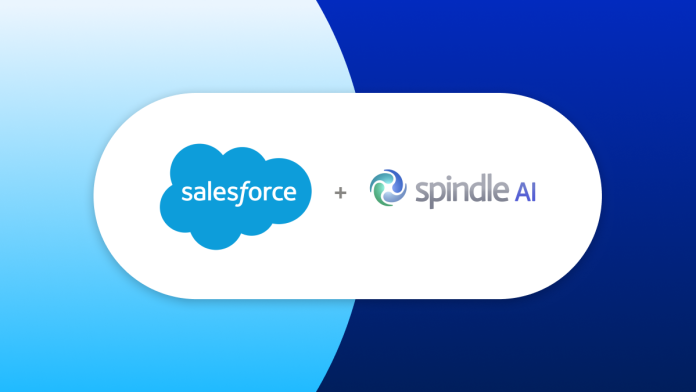Salesforce’s recent announcement to acquire Spindle AI marks a significant shift in the landscape of data-driven decision-making for small businesses. As enterprises generate an unprecedented amount of data, the challenge lies in harnessing this information to yield actionable insights. With Spindle AI’s advanced capabilities in agentic analytics, small business owners have new tools at their disposal to bridge the gap between raw data and strategic decisions.
Spindle AI, co-founded by seasoned technology innovators Ryan Atallah and Carson Kahn, offers a platform that leverages machine learning and AI to provide deeper insights into complex data sets. Small businesses often struggle to convert raw data into meaningful strategies, and Spindle AI’s technology seeks to transform this challenge into an opportunity. The key advantage here is the platform’s ability to simulate the impact of various business decisions, such as pricing strategies or market entry tactics, allowing owners to optimize their approach before implementation.
“The future of the agentic enterprise isn’t about having the most data; it’s about making that data speak a common language,” stated Adam Evans, EVP & GM of Salesforce AI Platform. This sentiment resonates strongly with small business leaders who often find themselves overwhelmed by data without the tools or expertise to decipher it effectively. The acquisition not only enhances Salesforce’s offerings but also empowers small enterprises to operate with the sophistication of much larger players.
Spindle AI employs neuro-symbolic AI agents to analyze vast amounts of data autonomously. This capability can be particularly beneficial for small businesses aiming to make quick, informed decisions without the need for extensive data analysis expertise. The platform can optimize a variety of scenarios rapidly, giving small businesses the agility to pivot in response to market changes.
However, small business owners should consider some practical applications and potential hurdles associated with this acquisition. The promise of utilizing advanced analytics to inform decision-making raises an important question: how prepared are these businesses to integrate such technology effectively? While the tools may be cutting-edge, the successful implementation still requires an investment in time and training.
Ryan Atallah, co-founder and CEO of Spindle AI, emphasized their mission to close the gap between business questions and data understanding. He noted that “We have spent years solving the hardest problems in intelligent analytics, machine learning, and data infrastructure.” This dedication highlights the complexity behind effective data utilization. Small business owners may need to evaluate their existing technical infrastructure to ensure it can support such advanced capabilities.
Additionally, the acquisition is framed within the context of a broader industry trend toward agentic systems that emphasize continuous monitoring and self-improvement. Jayesh Govindarajan, EVP Salesforce AI, stated, “We aren’t just acquiring a platform; we’re bringing on world-class expertise.” This statement underscores the value of integrating expert knowledge, which is essential for small businesses to maximize their return on investment in new technologies.
While the integration of Spindle AI into Salesforce’s ecosystem is positioned to provide significant benefits, small business owners might face challenges in terms of the learning curve associated with new technology. The transition requires not only financial investment but also a commitment to ongoing education about how to leverage these advanced analytics correctly.
Salesforce anticipates that the acquisition will finalize in its fourth fiscal quarter of 2026, contingent upon standard closing conditions. For small business owners, this time frame presents an opportunity to prepare for the impending changes that Spindle AI’s technology will bring.
In a landscape where data-driven decision-making is becoming increasingly critical, Salesforce’s acquisition of Spindle AI stands to empower small businesses to enhance their analytical capabilities. As they prepare for the launch of these advanced tools, entrepreneurs should consider their current data strategies and the potential to elevate their business intelligence, ultimately positioning themselves to compete more effectively in their respective markets.
For more details about the acquisition, visit the original press release here.
Image Via Salesforce



